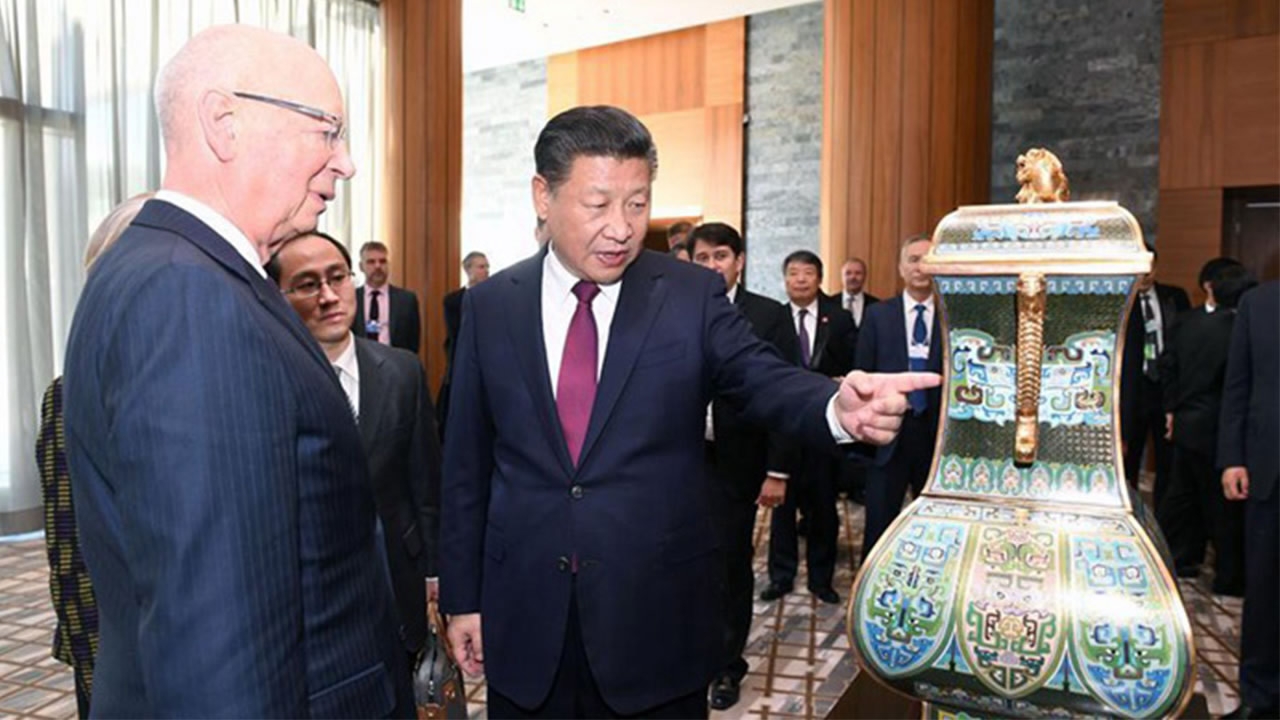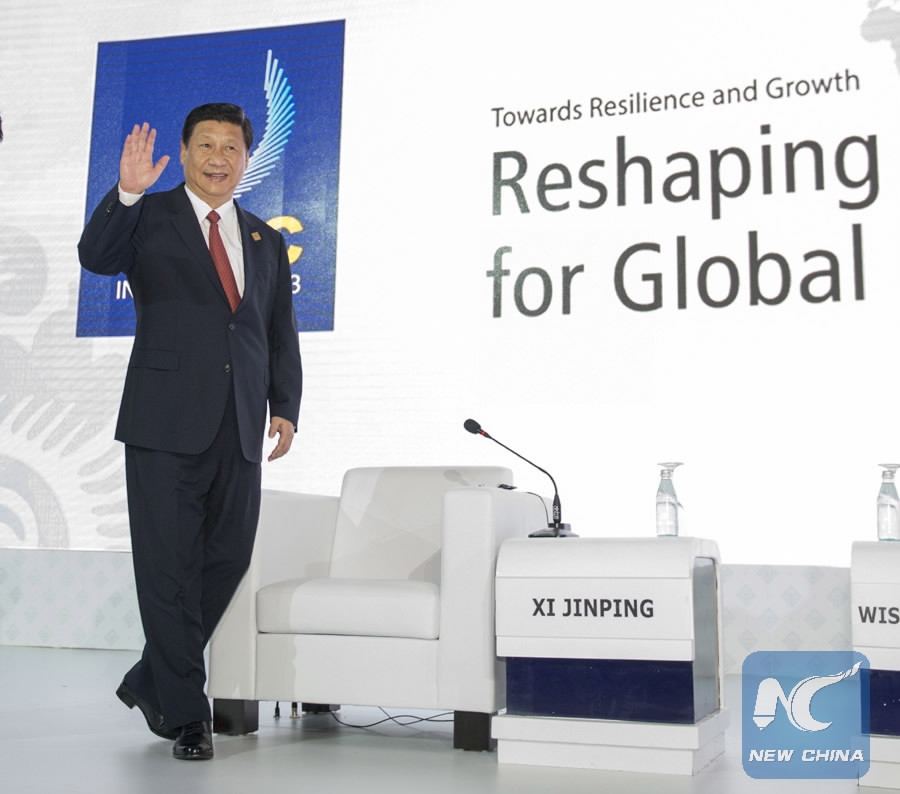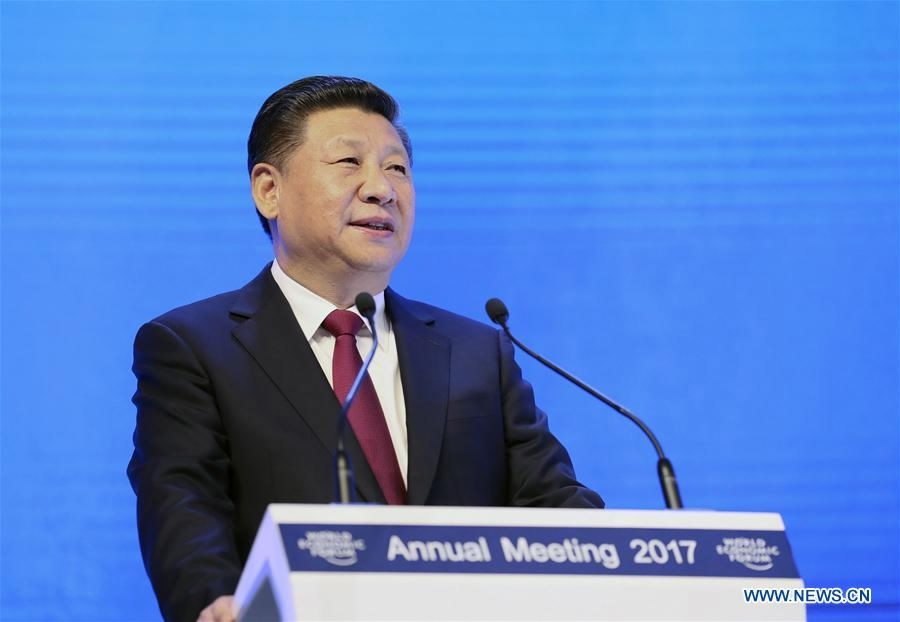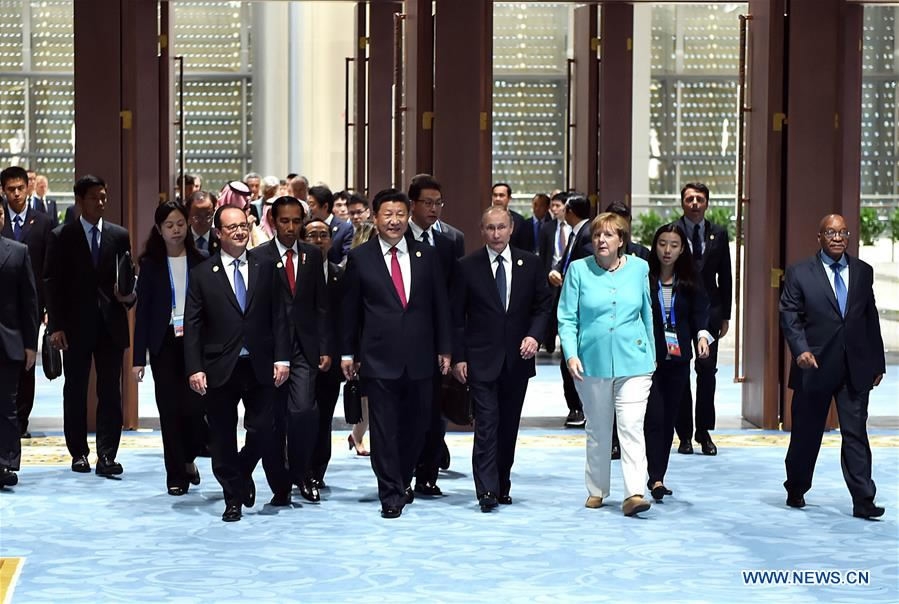
Politics
18:39, 31-Aug-2017
What is China doing to raise its global influence?
CGTN

In the face of changing global power dynamics and growing challenges worldwide, what has China been doing to reach its diplomatic goals under the leadership of Xi Jinping?
Xi, aiming to ensure China remains strategically active across the globe, has been promoting a more just and inclusive system of global governance over the past five years, according to the third episode of a newly released CGTN documentary series "Major-Country Diplomacy."
Hailed by the international community, his approach has raised China's status and influence across the world.

Chinese President Xi Jinping attends the APEC CEO Summit in Bali, Indonesia, October 7, 2013. /Xinhua Photo
Chinese President Xi Jinping attends the APEC CEO Summit in Bali, Indonesia, October 7, 2013. /Xinhua Photo
Emphasis on global governance
Since the 18th National Congress of the Communist Party of China (CPC) in 2012, "the CPC Central Committee with Xi Jinping as the core has focused on global governance and developed an approach for improving the current structure," Chinese Foreign Minister Wang Yi said recently.
Addressing the 70th United Nations General Assembly in September 2015, Xi expressed China's willingness to contribute to global development. "We are ready to share our development experience and opportunities with other countries and we welcome them to board China's express train of development."
Amid rising sentiments of populism, protectionism and anti-globalism highlighted by Brexit and the election of Donald Trump as the US president, Xi has presented China as a vigorous defender of economic globalism and free trade.

Chinese President Xi Jinping delivers a keynote speech at the opening plenary of the 2017 annual meeting of the World Economic Forum in Davos, Switzerland, January 17, 2017. /Xinhua Photo
Chinese President Xi Jinping delivers a keynote speech at the opening plenary of the 2017 annual meeting of the World Economic Forum in Davos, Switzerland, January 17, 2017. /Xinhua Photo
"Many of the problems troubling the world are not caused by economic globalization," he said in a keynote speech at the opening plenary of the 2017 annual meeting of the World Economic Forum in Davos in January. "Just blaming economic globalization for the world's problems is inconsistent with reality, and it will not help solve the problems."
Meanwhile, the Chinese president proposed an upgraded version of economic globalization, stressing that it must be open, inclusive, balanced and beneficial to all.
Build a community of shared future for mankind
China is playing an increasingly active role on the world stage by hosting large-scale multilateral meetings.
In November 2014, for the first time in 13 years, China hosted the annual APEC Economic Leaders' Meeting.
In September 2016, China marked another historic milestone, when the eyes of the world turned to the eastern city of Hangzhou, host of the G20 summit.

Chinese President Xi Jinping and other leaders of G20 members, some guest countries and international organizations walk into the venue of the G20 summit in Hangzhou, east China's Zhejiang Province, September 4, 2016. /Xinhua Photo
Chinese President Xi Jinping and other leaders of G20 members, some guest countries and international organizations walk into the venue of the G20 summit in Hangzhou, east China's Zhejiang Province, September 4, 2016. /Xinhua Photo
In May, the country hosted the Belt and Road Forum for International Cooperation in Beijing and will hold the 9th BRICS summit in coastal city Xiamen in September.
These multilateral meetings have become important platforms for world leaders to exchange views on how to improve global governance and achieve win-win development. And China's experience and wisdom are inspiring the world to take the path to a brighter future.
"China's proposition is: Build a community of shared future for mankind and achieve shared and win-win development," Xi stated during a visit the UN Office in Geneva in January.
Previous episodes:

SITEMAP
Copyright © 2018 CGTN. Beijing ICP prepared NO.16065310-3
Copyright © 2018 CGTN. Beijing ICP prepared NO.16065310-3